- October 26, 2023
Why Does My Dog Drool at the Dog Park? 8 Reasons & Advice
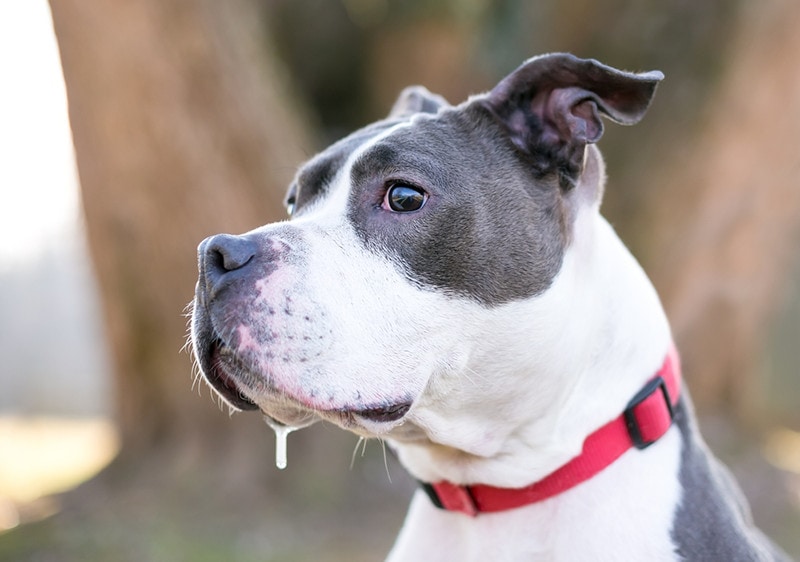
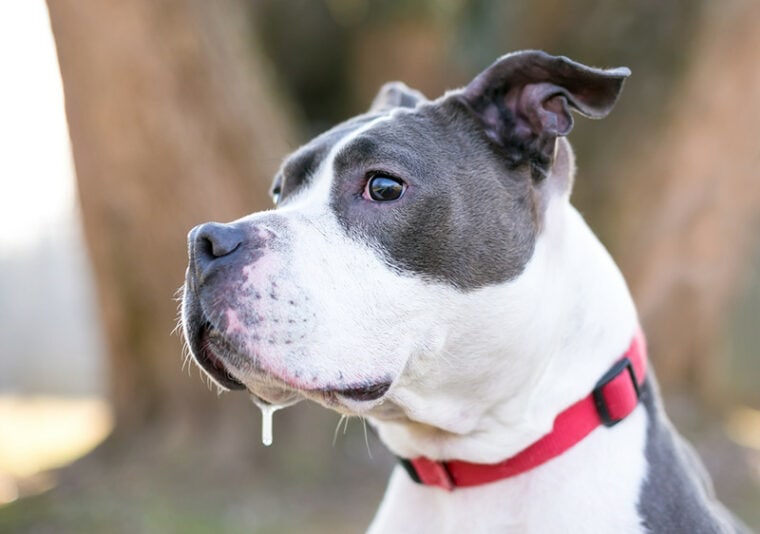
When you’re a dog owner, drool comes with the job description. However, sometimes it can seem like your dog drools inexplicably. If you have noticed that your dog drools when visiting the dog park, you may wonder what could cause it.
In this article, we’ll discuss eight reasons your dog drools at the dog park. We’ll also look at the health issues that may cause your dog to drool excessively and provide advice for when you should visit a vet.

The 8 Reasons Why Your Dog Drools at the Dog Park
1. Stress
Dog parks can be a lot of fun but can also be overwhelming. If your dog is bombarded by sensory overload every time they visit the dog park, they may be drooling due to stress. To prevent this, determine which part of the dog park experience is stressful for your dog.
Is it the new environment or the other dogs? Once you determine what is causing their stress, you can work to desensitize your dog to the stimuli. However, in some cases, it is best to avoid the situation entirely. For example, if there is another dog at the dog park that is aggressive or unkind to your dog, it may be in your best interest to find a new dog park.
2. Excitement
Does your dog wag their tail when they realize they’re going to the dog park? If that’s the case, it’s possible your dog is drooling due to excitement. Dog parks are exciting places! Your dog gets to run, play, and make four-legged friends.
Getting your dog to stop drooling from excitement can be challenging, but luckily, this extra slobber should be temporary. Once your dog is racing around the park, the drool shouldn’t be much of an issue.
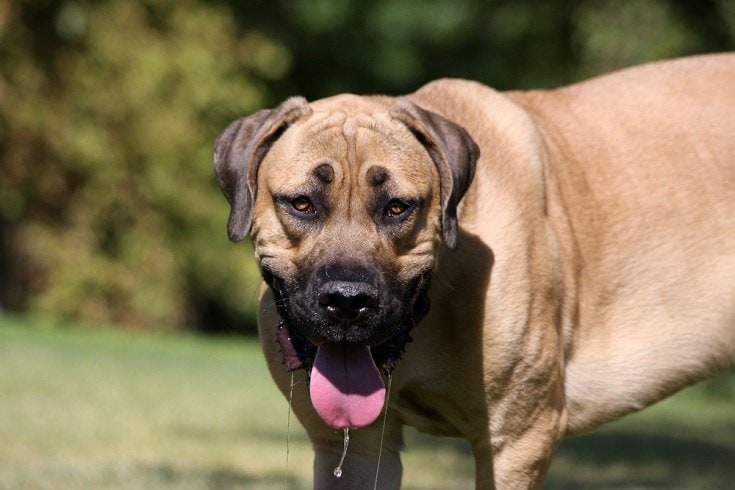
3. Anxiety or Fear
Drooling may also be caused by anxiety and fear. Often, dogs that were not properly socialized as puppies become overwhelmed at the dog park. Dog parks have many new sights, sounds, and people, which may sound like heaven for a dog, but for an unsocialized dog, it’s terrifying.
If a lack of socialization causes your dog’s fear of the dog park, it is never too late to gradually expose them to new experiences so that they can adjust. However, your dog may prefer your backyard or another area with fewer distractions to dog parks.
4. Food Response
With plenty of dog owners in one place, you can bet that dog treats are around. Whether you bring dog treats to the dog park or not, there is a chance that your dog may have snuck one off the ground or accepted one from someone else. If this happens often enough, your dog may connect the dog park with treats and salivate in anticipation.
If you’re sure that your dog has never had a dog treat while at the park, think about the location of the park. Is it in a rural area or close to shops and restaurants? If the dog park is close enough to any establishments that serve food, your dog may be able to smell the food and salivate in response. Your dog has as many as 300 million olfactory receptors, so don’t underestimate how much they can smell!
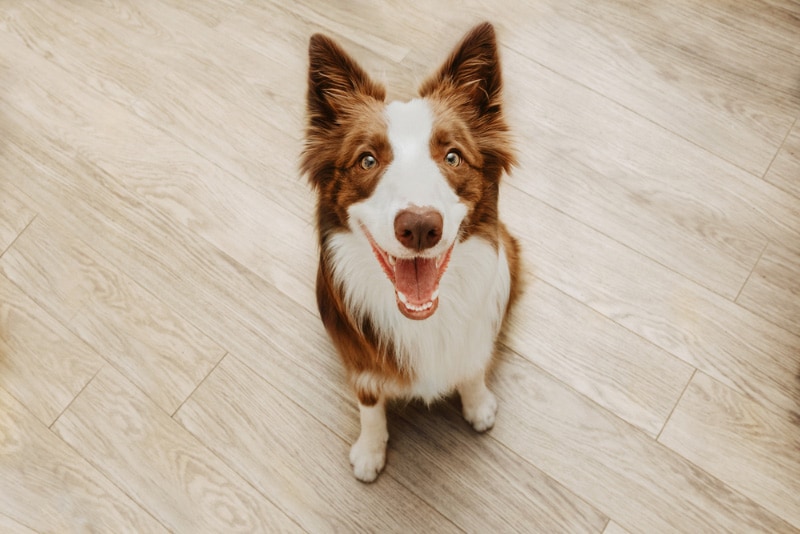
5. Nausea
Pay close attention to the timeline of your dog’s drooling. Does it start in the car and wane the longer your dog spends at the park? If that’s the case, it is possible that your dog isn’t drooling due to the dog park but due to the car ride.
Just like humans, dogs can suffer from motion sickness. Nausea can make dogs drool; if your dog is anticipating being nauseous, they may also drool due to stress or anxiety. To prevent this, you can work to desensitize your dog to car rides. The process takes time and effort, but the results are well worth it.
6. Heat
If your dog gets overheated at the dog park, they may drool as a result. Pay close attention to your dog on hot days, and bring plenty of water for them to drink. Dogs exposed to heat with no means to regulate their internal temperatures can suffer from heat-related illnesses like heatstroke.
Heatstroke is a medical emergency that can lead to organ failure. If you believe your dog is suffering from the heat, get them to an air-conditioned location and contact your vet.
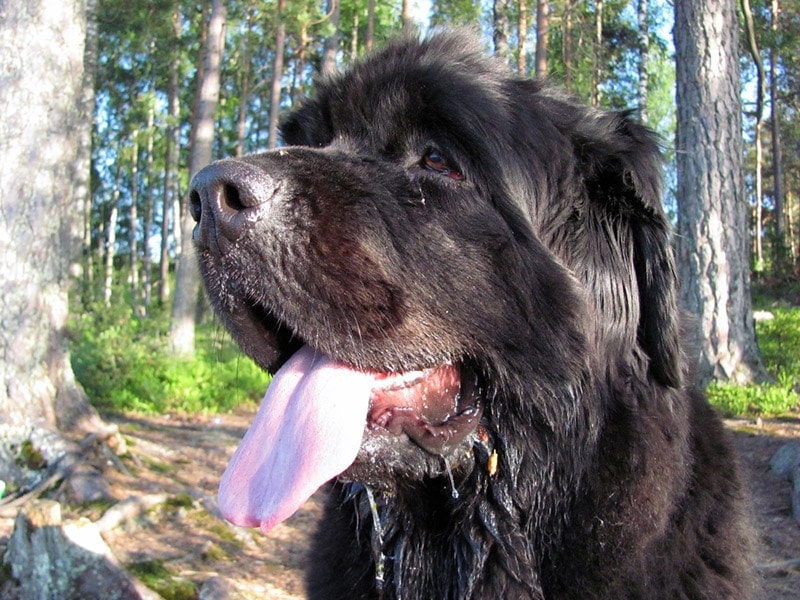
7. They Are Physically Prone to Drooling
Some dog breeds are prone to drooling, so even the slightest bit of excitement can make them drool. This is because the anatomical structure of their mouth makes it harder to keep saliva inside.
Some slobbery breeds include:
- Bernese Mountain Dogs
- Bloodhounds
- Boxers
- Dogue de Bordeaux
- English Bulldogs
- Great Danes
- Mastiffs
- Pitbulls
- Saint Bernards
If your dog is a slobbery breed, there isn’t anything you can do to stop them from drooling. You simply need to take extra steps to keep your dog (and your possessions) slobber-free.
8. Foreign Bodies or Mouth Injuries
It is important to supervise your dog at a dog park for many reasons, including ensuring they don’t get into something they shouldn’t. If your dog decides to munch on something sharp or brittle, they may get jagged pieces stuck in their mouth.
The foreign object lodged in their mouth and the resulting injury could cause your dog to drool. If something is stuck in your dog’s mouth, you need to visit the vet as soon as possible. Do not try to remove the item yourself, as you may cause further harm to your pet.
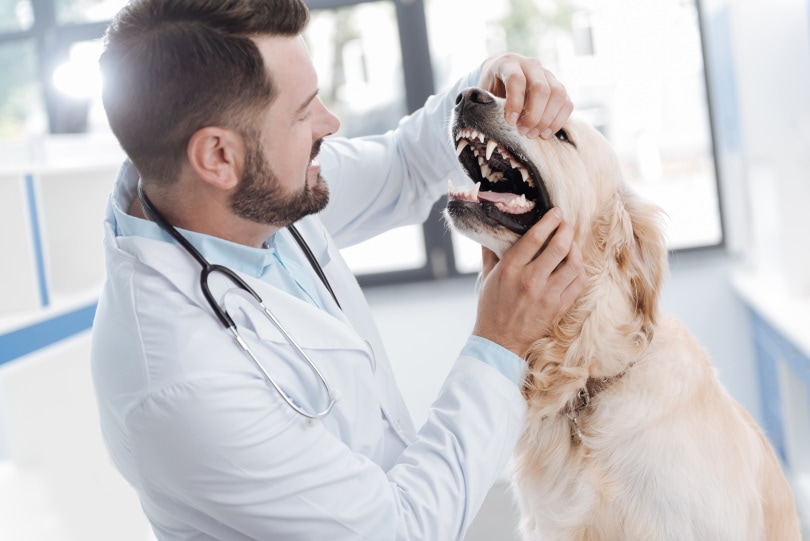

Health Issues That May Cause Excessive Drooling
If you believe your dog is drooling excessively, you should reach out to your vet immediately. Excessive drool can indicate a serious medical condition, possibly even a life-threatening issue. Some issues include gastrointestinal disorders, dental problems, neurological conditions, infections, burns, toxins, and venom.
Gastrointestinal Disorders
- Inflammatory bowel disease
- Esophagitis
- Enteritis
- Gastritis
- Pancreatitis
- Gastric ulceration
- Gastrointestinal cancers
Dental Issues
- Gingivitis
- Stomatitis
- Tumors
Neurological Conditions
- Damaged nerve linked to the salivary gland
- Brain damage
Burns
- Chemical burns
- Electric burns
When Your Dog Needs to See a Vet
If you are concerned for your dog’s health, do not hesitate to reach out to your vet. Otherwise,
Seek help immediately if you notice the following signs:
- Vomiting
- Diarrhea
- Bleeding
- Lethargy
- Lack of appetite, alterations to feeding behavior
- Significant changes in behavior
- Trouble swallowing
- Restlessness
- baning at the mouth
- Poor balance or coordination
- Abdominal distention

Conclusion
Drool isn’t the most pleasant part of being a dog owner, but a little slobber is a small price to pay when spending time with our furry friends. We hope this list has taught you something new about your dog’s response to dog parks, perhaps allowing you to cut down on the drool a little. If you are concerned with the excessiveness of your dog’s drool, don’t delay getting your dog veterinary attention. Otherwise, have fun and enjoy the dog park experience with your pal!
Featured Image Credit: Mary Swift, Shutterstock
Tags
What do you think?
Related Articles

New Puppy Checklist: Gear You’ll Need for Your New Dog
Getting a new puppy is really exciting, but before you welcome them home, it’s important to prepare your space for them. Since puppies need a

How Big Do Mini Poodles Get? Vet Reviewed Average Weight & Growth Chart – Dogster
The information is current and up-to-date in accordance with the latest veterinarian research. Learn more » When you buy a Miniature Poodle, you might not

Can Police Dogs Smell Nicotine? Vet Verified Facts & Info – Dogster
The information is current and up-to-date in accordance with the latest veterinarian research. Learn more » While cigarette sales have been declining steadily for decades,

How Old Is 5 in Dog Years? Vet-Approved Guide to Each Size of Dog – Dogster
The information is current and up-to-date in accordance with the latest veterinarian research. Learn more » A common method for calculating a dog’s age is

